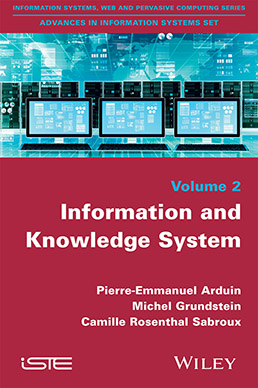
Most common definitions of the information system fail to clearly separate the notions of information and knowledge, and these terms are generally used quite loosely. This is particularly the case for projects dealing with digital information systems (DIS) using applications of Web 2.0 and big data.
This book presents the inherent risks linked to this ambiguity and studies the notion of the Enterprise’s Information and Knowledge System (EIKS). It specifies the limits and conditions within which knowledge can be considered as an object and treated as an object in a DIS. EIKSs allow data exchanges, but also ensure how they are interpreted. They become actual knowledge systems.
1. Information Systems and Digital Technology.
2. Knowledge Management.
3. The Enterprise’s Information and Knowledge System (EIKS) .
Pierre-Emmanuel Arduin is Associate Professor at Paris-Dauphine University, France. His research domains are information system, knowledge management, and decision aid. He is also in charge of the Master's degree studies in extended companies' information systems.
Michel Grundstein is an associate researcher for LAMSADE at Paris-Dauphine University, France. His research domain is knowledge management.
Camille Rosenthal-Sabroux is Full Professor at Paris-Dauphine University, France. Her research domains are information system, knowledge management, and decision aid. She is also in charge of the Master's degree studies in extended companies' information systems.